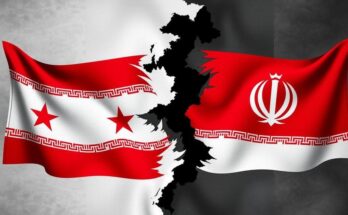The Egyptian-Saudi electricity interconnection project is set to begin operations by May or June 2025, with an initial capacity of 1,500 megawatts and a total of 3,000 megawatts upon completion. The project reflects a broader commitment to renewable energy and cooperative investment between the two nations, reinforced by the establishment of the Egyptian-Saudi Supreme Coordination Council and mutual investment protection agreements, discussed during a pivotal summit between President Al-Sisi and Crown Prince Mohammed bin Salman.
Egypt and Saudi Arabia are poised to enhance their energy collaboration with the upcoming launch of the first phase of the Egyptian-Saudi electricity interconnection project, which is set to be operational by May or June 2025. Prime Minister Mostafa Madbouly emphasized the project’s significance during a recent press briefing, reiterating the government’s commitment to renewable energy initiatives and the vital role of joint investments in the industrial sector. The interconnection project will have an initial capacity of 1,500 megawatts, promoting the exchange of electricity resources between the two nations. Prime Minister Madbouly stated, “The project will have a capacity of 1,500 megawatts and facilitate energy exchange between both countries,” adding that the total capability upon completion will reach 3,000 megawatts, thereby exceeding the energy capacity of regional Gulf Cooperation Council (GCC) countries. This announcement follows a summit that took place in Cairo between Egyptian President Abdel Fattah Al-Sisi and Saudi Crown Prince Mohammed bin Salman, focused on strengthening bilateral coordination across various sectors, including politics, foreign affairs, and regional matters. The agreement to form the Egyptian-Saudi Supreme Coordination Council was also signed, which will be chaired by both leaders and involve various ministers, positioning it as a critical platform for enhanced cooperation. Madbouly noted, “This council is a crucial mechanism for comprehensive high-level coordination,” and highlighted that it is essential for reinforcing strategic relations and facilitating transformative progress. Additionally, the summit included a mutual investment protection agreement intended to encourage and safeguard reciprocal investment endeavors. Madbouly remarked, “We were able to achieve this in a very short period of time,” asserting that this agreement will catalyze Saudi investments within Egypt. During the briefing, Madbouly underscored the importance of the summit in light of ongoing regional shifts. He articulated, “This event conveyed crucial messages,” as discussions centered around recent developments in the region and the necessity of collaborative responses to these rapid changes. The discourse also encompassed specific regional challenges, such as the conflicts in Gaza and Southern Lebanon, highlighting the shared vision and united approach between Egypt and Saudi Arabia in striving for peace and stability. “Both Egypt and Saudi Arabia share a unified vision regarding these crises, emphasizing the need for joint efforts to prevent the spread of conflict and facilitate peaceful resolutions,” stated Madbouly. In addition to the interconnection project, the Prime Minister briefly provided insights into Egypt’s economy and announced the forthcoming trial operation of the Grand Egyptian Museum. This significant project, under direct oversight by President Al-Sisi, is anticipated to become a global cultural landmark that showcases Egypt’s rich heritage and is expected to draw substantial international tourism. Madbouly concluded his address by calling upon Egyptians to remain vigilant and united amid unprecedented regional challenges, assuring that the nation would continue to serve as a bastion of safety and stability within the region.
The Egyptian-Saudi electricity interconnection project represents a pivotal collaboration aimed at enhancing energy security and promoting sustainable energy utilization in both countries. This initiative reflects the growing trend towards renewable energy investments and cross-border energy trading among nations. With a projected total capacity of 3,000 megawatts, this would not only bolster the energy grid of both countries but also fortify regional energy stability. Such projects are increasingly crucial as countries navigate the dual imperatives of energy need and environmental responsibility. The signing of additional cooperative agreements between Egypt and Saudi Arabia during high-level meetings underscores a broadening of diplomatic and economic ties, addressing both immediate and regional challenges.
In conclusion, the first phase of the Egyptian-Saudi electricity interconnection project marks a significant advancement in the collaborative efforts between Egypt and Saudi Arabia in the energy sector. The initiatives outlined during the summit, including the formation of key coordination councils and investment protection agreements, highlight a strategic commitment to reinforce bilateral ties and tackle pressing regional challenges. Prime Minister Madbouly’s reaffirmation of a united vision for collective regional stability further underscores the importance of these developments in fostering peace and growth in the Arab and Islamic world.
Original Source: www.dailynewsegypt.com




